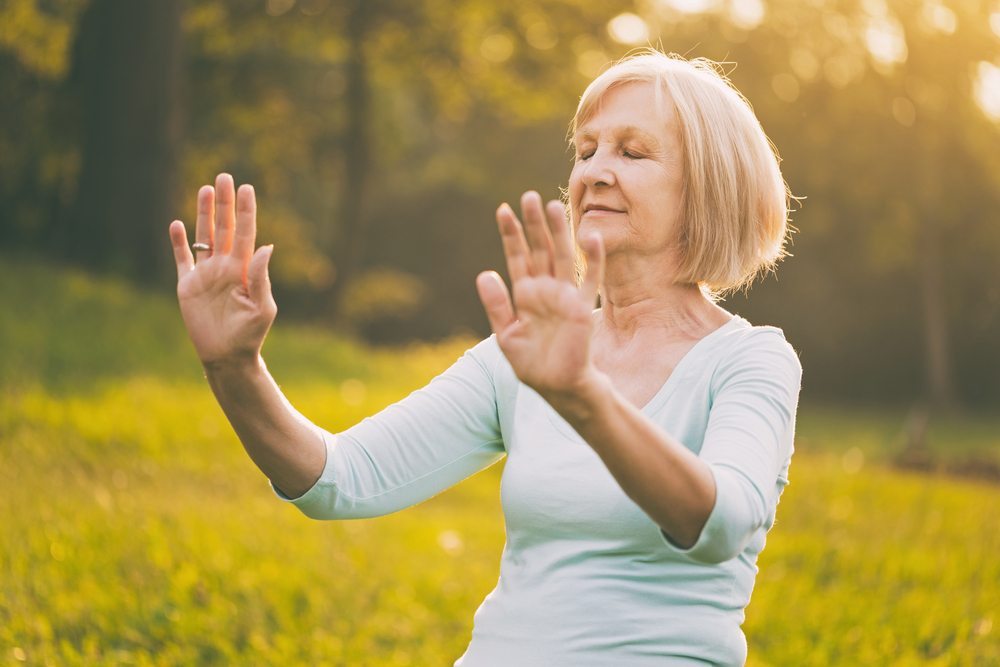

If you’re new to exercise, or looking for a new form of physical fitness that’s extremely easy on your body’s joints, tai chi may be just the thing for you! Dating back over 2,500 years, tai chi is often times described as “meditation in motion,” as it’s believed to be able to clear your mind and reduce your stress though focused concentration.
What is Tai Chi
Tai chi is an ancient martial art from China that incorporates a series of slow, controlled weight shifting body rotations and semi-squat exercises with deep breathing techniques. This low-impact, slow-motion exercise is found to be incredibly safe. Its circular movements keep muscles relaxed while putting minimal strain on bones and joints. Another benefit of tai chi is that it can be adapted for every age and fitness level, including seniors and people with very limited mobility—even those confined to wheelchairs or recovering from surgery.
Regular practice of tai chi’s gentle, physical exercise can improve muscle strength, flexibility, and cardiovascular endurance. Addressing these fitness components may help with age-related issues such as muscle loss, symptoms of arthritis and other joint pain, and breathing problems including chronic obstructive pulmonary disorder (COPD). Tai chi exercises can help with arthritis and joint pain by helping retain range of motion, so they don’t stiffen further.
Tai chi can help increase leg strength and overall balance, which is essential to helping seniors stay steady on their feet and avoid falls. This practice helps with core stability, which also improves balance. A study in The New England Journal of Medicine found tai chi to be effective for balance in people with Parkinson’s disease and other neurological problems. By targeting leg strength, flexibility, range of motion, and reflexes, tai chi’s exercises may help you feel sturdier on your feet and, in turn, ease the fear of falling.
The Benefits of Tai Chi
Any type of movement that gets seniors off the couch and moving can be of a great benefit both physically and mentally. Exercise of all kinds can improve cognitive functioning—and despite being a less aerobic form of exercise—tai chi has been shown to have brain benefits as well. Another study published in the Journal of Alzheimer’s Disease reported that tai chi is linked to increases in brain volume, delayed dementia, and found individuals that practiced tai chi regularly showed improvements on tests of memory and thinking.
Tai chi’s deep breathing meditation techniques can help relieve stress and improve feelings of overall well-being. The calming, meditative body movements can help improve breathing efficiency, circulation, and sleep, as well as lower blood pressure and prevent heart disease.
One more great thing about tai chi is that no special equipment is needed. A skilled teacher can easily adapt movements to fit every age and fitness level. Taking a tai chi class—either indoors or outdoors—is a great way for seniors to socialize with their peers. Contact your local recreation or senior center for available classes. As always, check with your healthcare provider before beginning any new exercise routine.
